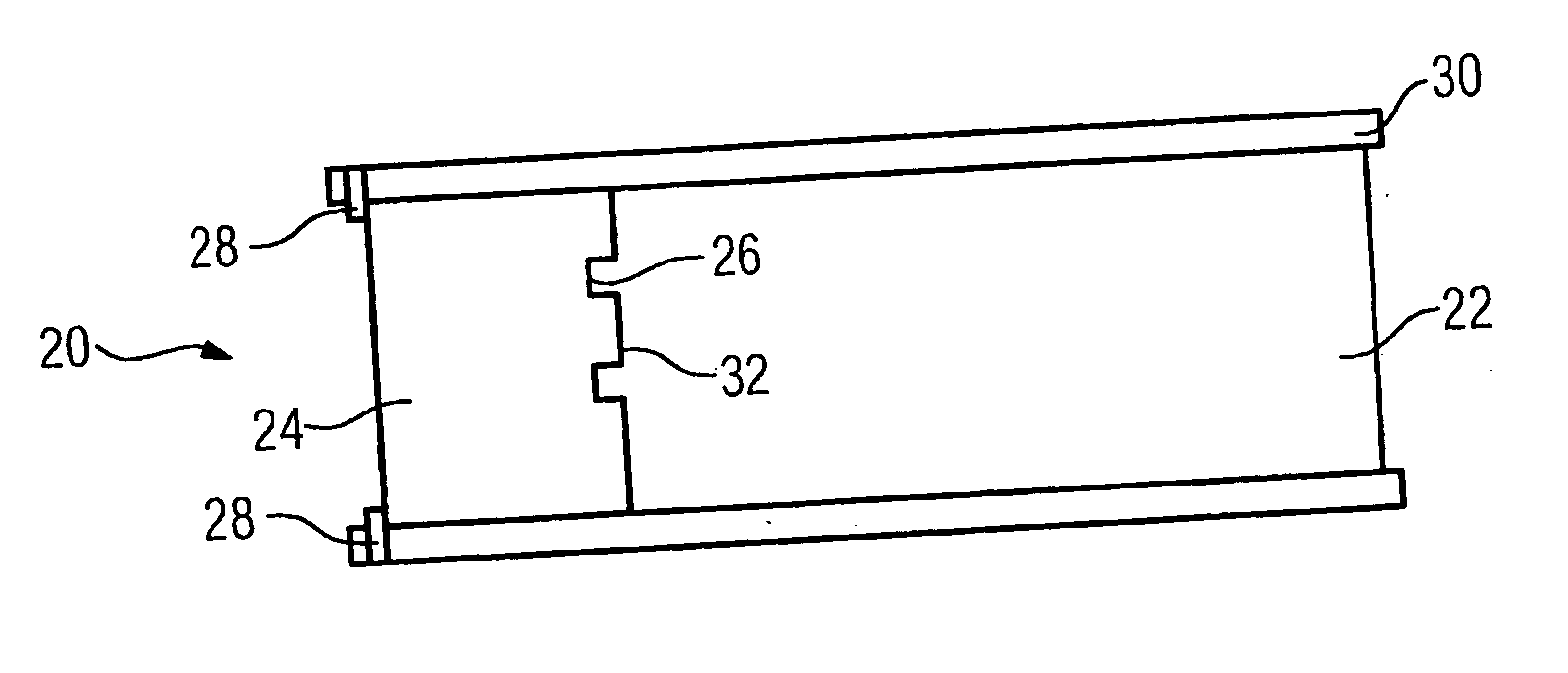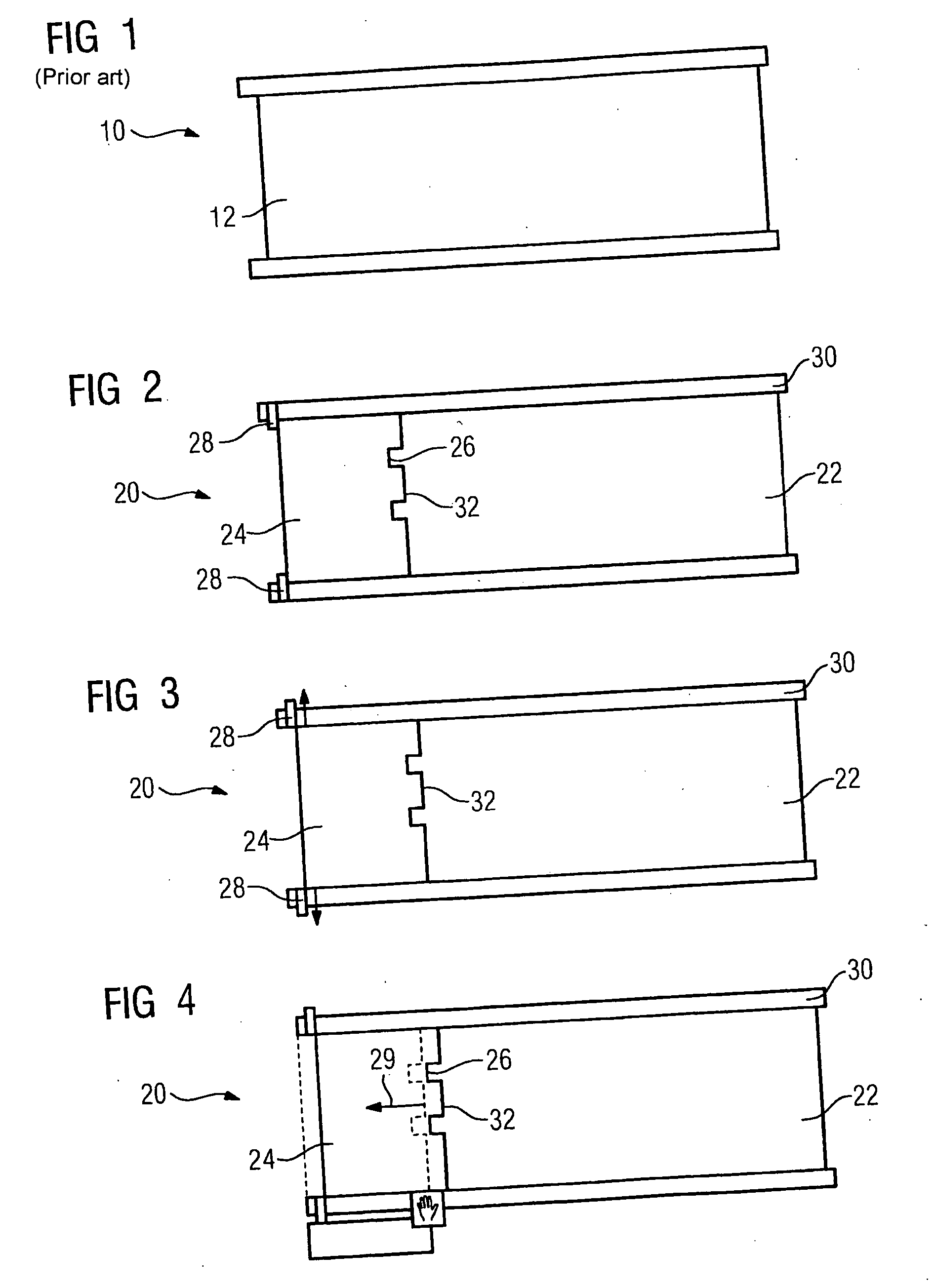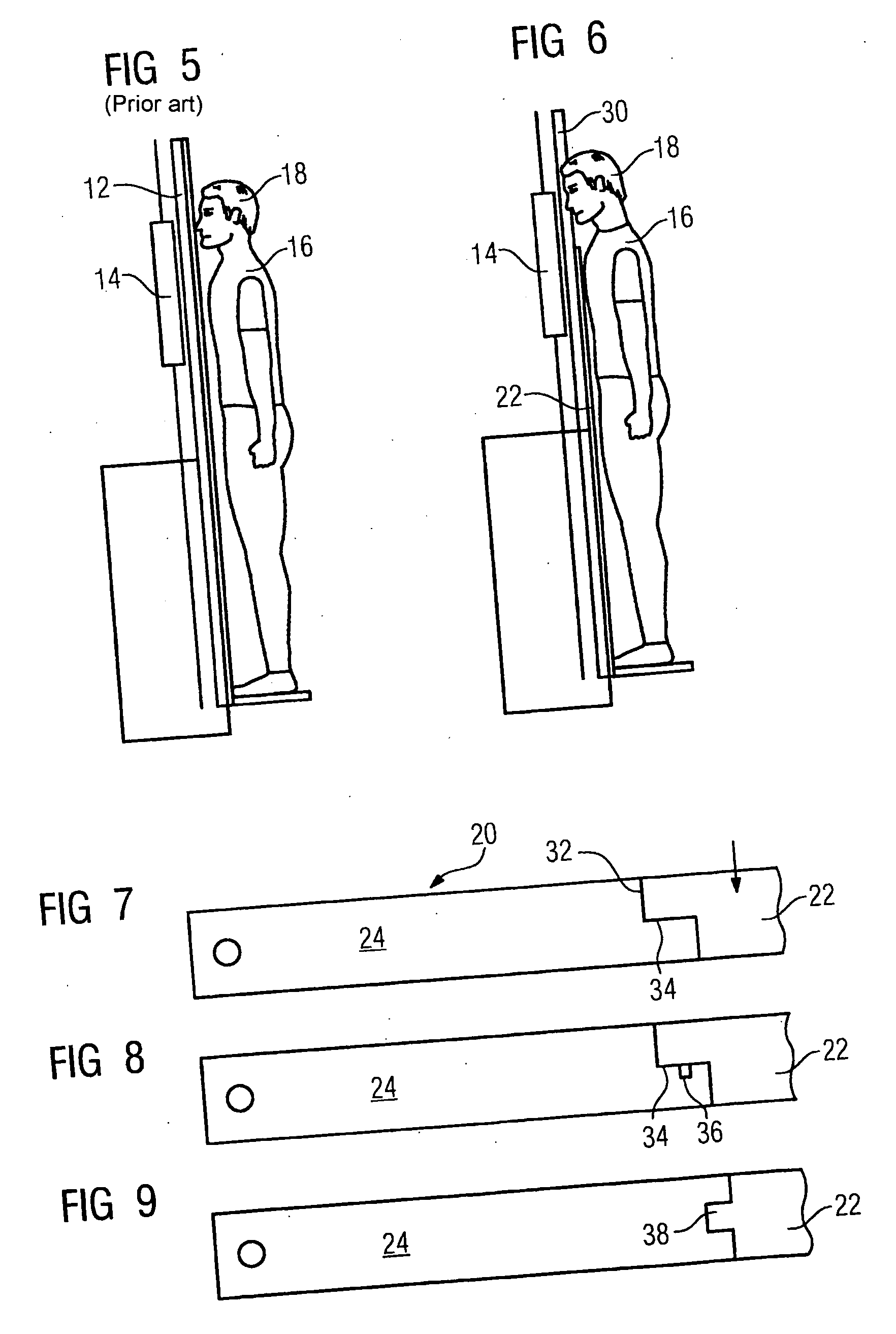Patient table for an X-ray system
a patient table and x-ray technology, applied in the field of patient tables for x-ray systems, can solve the problems of geometric enlargement of images, insufficient proximity to detectors, and geometric limitation of the region to be examined,
- Summary
- Abstract
- Description
- Claims
- Application Information
AI Technical Summary
Benefits of technology
Problems solved by technology
Method used
Image
Examples
Embodiment Construction
[0032]FIG. 1 shows a patient table 10 of the prior art for an x-ray system with a stable, fixed table top 12 comprising one piece.
[0033] In the prior art, the table top 12 is then in the way if the patient is to be recorded in an upright position. This is illustrated in FIG. 5. When the patient table 12 is in an upright position, the patient table interferes in the radiation path (from the x-ray emitter (not shown)) to the x-ray detector 14. It would be desirable for a patient 16 to move his / her head 18 as close as possible to the x-ray detector 14. Compared with the horizontal function, the table 12 has completely lost its function and in the prior art is frequently completely removed. Such a table is however very heavy.
[0034] The invention provides a patient table 20, as shown in FIG. 2. The patient table 20 comprises two modules, a main table module 22 and a head module 24. The two modules interlock at their juncture by means of teeth 26 and are locked.
[0035] Damping spring bo...
PUM
 Login to View More
Login to View More Abstract
Description
Claims
Application Information
 Login to View More
Login to View More - R&D
- Intellectual Property
- Life Sciences
- Materials
- Tech Scout
- Unparalleled Data Quality
- Higher Quality Content
- 60% Fewer Hallucinations
Browse by: Latest US Patents, China's latest patents, Technical Efficacy Thesaurus, Application Domain, Technology Topic, Popular Technical Reports.
© 2025 PatSnap. All rights reserved.Legal|Privacy policy|Modern Slavery Act Transparency Statement|Sitemap|About US| Contact US: help@patsnap.com



